- Top of the Funnel
- Posts
- Still writing cookie-cutter content?
Still writing cookie-cutter content?
How three experts are AI-proofing their content strategy
Marketing ideas for marketers who hate boring
The best marketing ideas come from marketers who live it.
That’s what this newsletter delivers.
The Marketing Millennials is a look inside what’s working right now for other marketers. No theory. No fluff. Just real insights and ideas you can actually use—from marketers who’ve been there, done that, and are sharing the playbook.
Every newsletter is written by Daniel Murray, a marketer obsessed with what goes into great marketing. Expect fresh takes, hot topics, and the kind of stuff you’ll want to steal for your next campaign.
Because marketing shouldn’t feel like guesswork. And you shouldn’t have to dig for the good stuff.
Okay, we all know cookie-cutter content doesn’t cut it any more.
But what exactly should we be doing to make sure our content stands out from the crowd – and rises to the top of the SERPs?
Rob Glover decided to ask the experts.
And he catalogued all their hot takes in a banger of an article called 9 Ways to Truly Differentiate Your Content in an AI World
Here are my three fave takeaways from Rob’s awesome article…
🤓 Bake expert insights into your outlines
We all know SME quotes make our content more credible and compelling.
But a lot of us treat expert insights like a garnish – something we sprinkle onto an article once it’s finished to give it an extra lil’ somethin’-somethin’.
The end result? A piece that looks the same as everyone else’s on the topic… with a couple of SME quotes tagged on at the end.
And content that looks the same as everyone else’s is exactly what we’re trying to avoid here 🙃
Luckily, Colin Campbell is here to show us a much better way.
He told Rob that he’s used AI to transcribe every expert interview him and his team have ever done, identify the potentially quotable sections, then add those to a database.
And now, whenever he’s writing an article, he feeds an LLM the article’s outline, then prompts it to scan his database of expert insights to pull out potentially relevant quotes. That way, Colin says, “at the outline stage, I’m making sure to inform our angle with a real POV and to prove that POV with a quote.”
Of course, you don’t need a database of expert quotes and a fancy LLM workflow to do this (although I’m deffo jealous of Colin’s setup 👀).
The big takeaway here is that the earlier you bake expert insights into your content, the more valuable your content is going to be for your readers – and the more it’s going to stand out from everyone else following the outline an SEO tool (or LLM 💀) has spat out.
🤖 Explore AI-proof content formats
It’s safe to say that “What is [target keyword]” articles ain’t what they used to be now that AI Overviews are on the scene.
So the smart marketers are starting to move away from articles tackling TOFU terms – and towards more AI-proof formats.
He’s been experimenting with two formats:
🏆 A Sales Assets Hall of Fame
Eric has built The Revenue Archives: a gallery of sales assets to help inspire his customers to create their own.
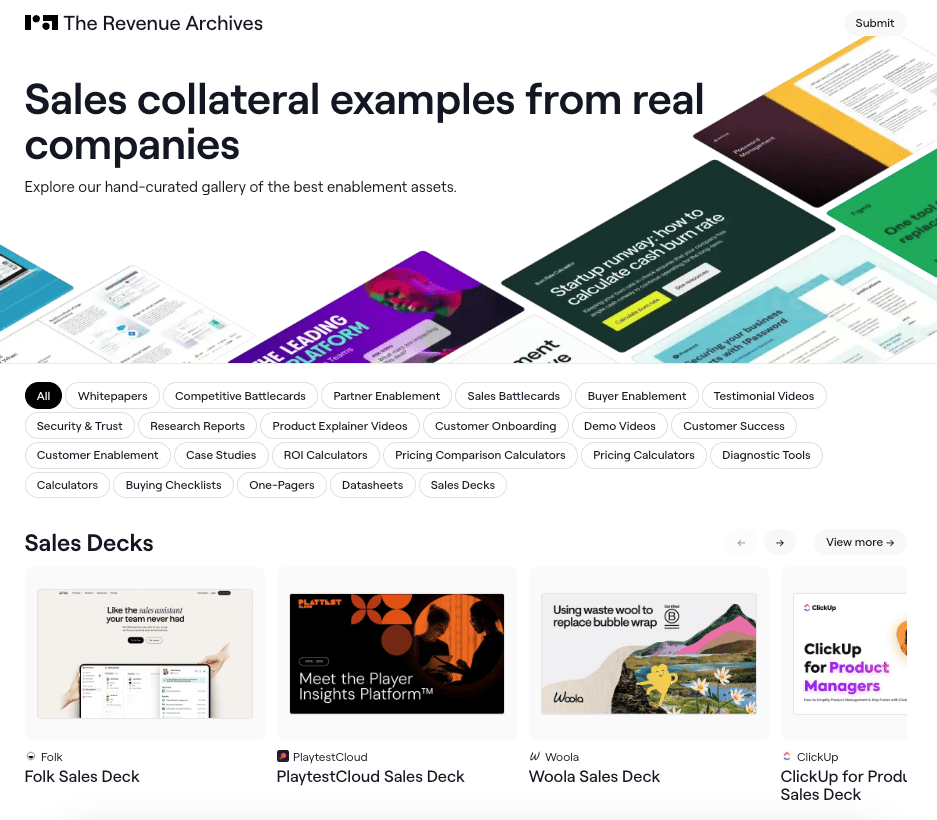
The thinking behind it?
“It’s one thing to write best practices; it’s another to curate examples. It’s effortful work that’s still not extremely easy for LLMs to replicate,” Eric told Rob.
💻 Templates galore
Dock also has an impressive library of templates covering many of the most common jobs its ICP faces, like creating business cases and onboarding customers.
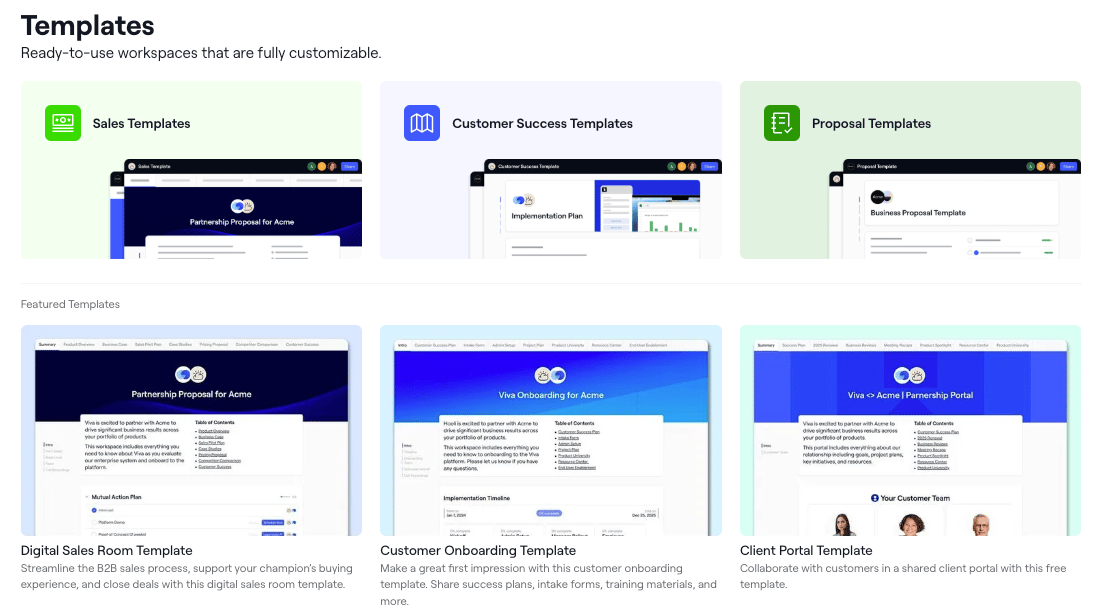
“Templates don’t feel like content, but we’re building things in our product that people can actually use,” Eric told Rob.
“These assets are a fantastic SEO play, too,” adds Eric. “The query “customer onboarding template” gets a few hundred searches each month—presumably from Dock’s ICP.”
To see how much money is in these queries, just look at the number of ads brands are paying for on the term “invoice template” (a search I may or may not have frantically made after I made my first freelance sale 🫣)
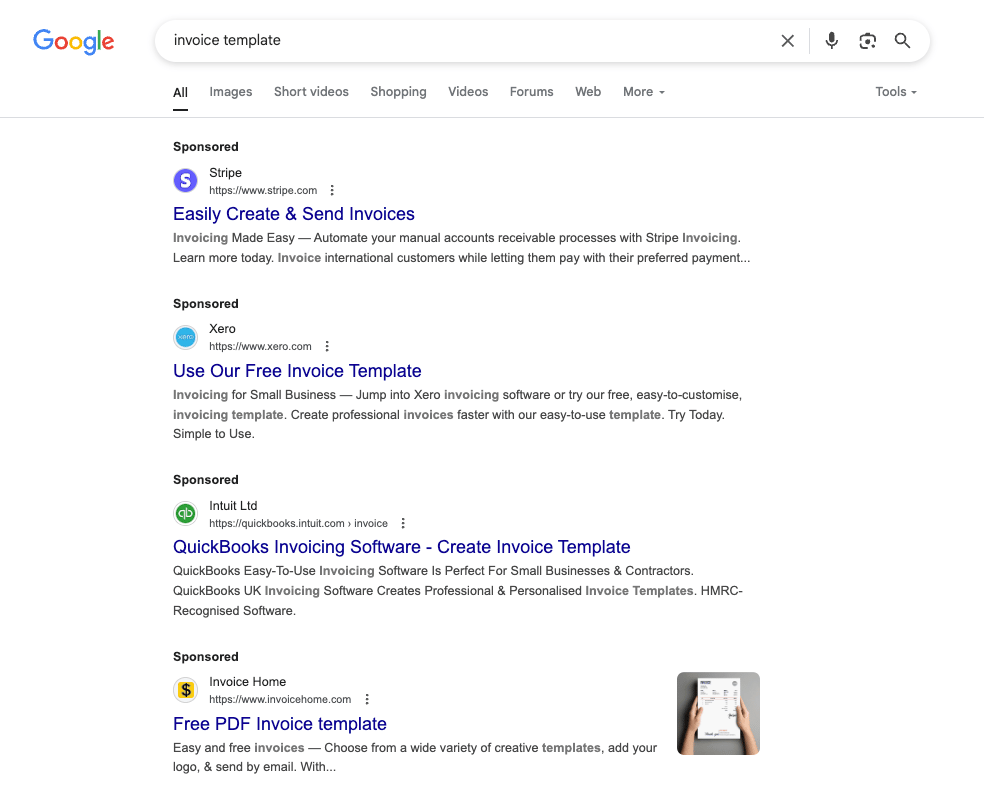
Sales asset examples and templates don’t fit into every content strategy. But the point stands: the smart play might be to think beyond blog posts with your content strategy.
That echoes something Jess said in last week’s deep dive:
“I’m not just making a blog post to make a blog post. Sometimes that becomes deep research into some other topic. Or it might end up being a programmatic play. Or maybe we make a white paper. Or maybe we make a landing page that targets an industry that the client hasn't targeted yet.”
🖐️ Get first-hand experience
Hands up if you add “reddit” to the end of your Google searches in the wild.
🙋
I mean, Reddit isn’t a safe haven from marketing manipulation – especially after Google bumped it way up the search results.
But last I checked, the affiliate commission on cardboard boxes and plastic water bottles isn’t huge. So you’re just never going to get this level of honesty from a “best toddler toys” round-up outside of social media:
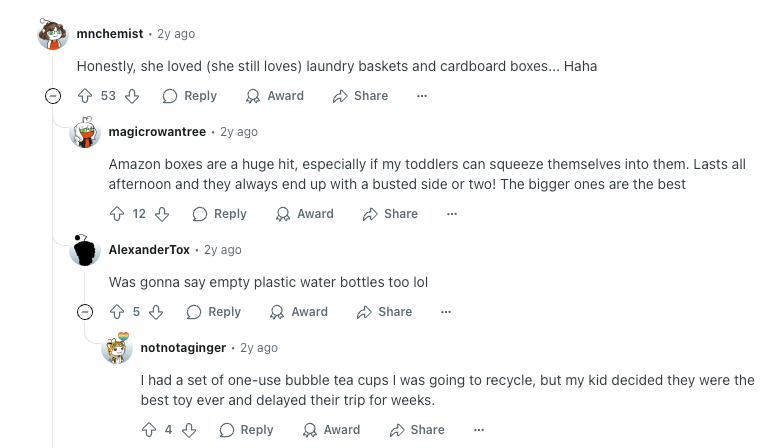
That’s what we all want from the content we read, right? People’s actual, first-hand experience with solving the problem we’re trying to solve.
Louise Linehan, a content marketer at Ahrefs, told Rob that’s how the SEO tool tries to differentiate its content.
For example, when Ahrefs publishes a tool review, it’s not just a rehash of G2 and Capterra reviews. “We’ll share screenshots of videos of us actually testing and using the tools, and we make sure to get specific,” Louise told Rob.
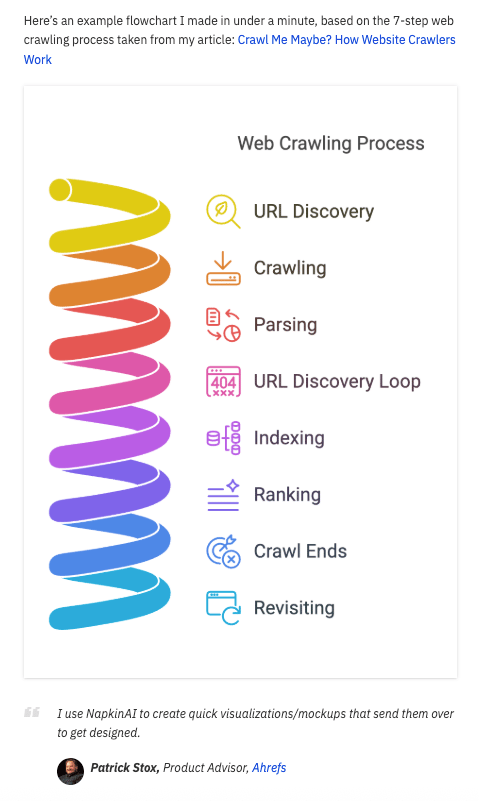
Louise shared several other examples of how Ahrefs builds different types of content around first-hand experience with Rob, too:
Tutorials based on use cases that were successful at Ahrefs.
Research-based content using their proprietary data.
Point-of-view articles with their unique take on developing industry news.
These days, if you want to create content that consistently ranks for competitive keywords then you’re going to need to go further than a book report on the articles already ranking for your keyword.
Rooting their articles in first-hand experience is how Ahrefs is doing that. And it’s an approach they might be doubling down on it, Louise told Rob:
“I think the next step for us, in terms of differentiation, is to get more personalized with the content we create so that we are able to answer more complex AI search queries and turn up in the kinds of specialized conversations that are happening right now.”
Rob covers a bunch more ways to create content that’s going to thrive in the new age of SEO in…
Check it out to learn how some of the smartest folks in content are approaching their strategies right now.
🧵 This week’s best TOFU threads
 | TOFU Community Manager |

